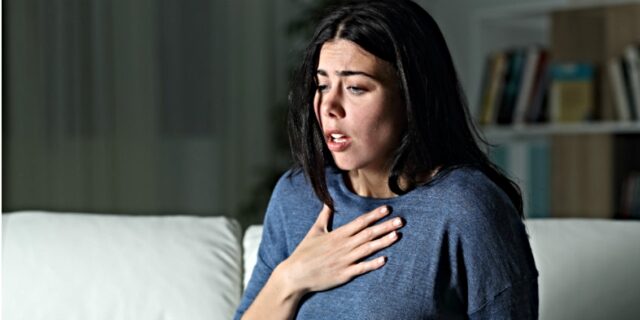We all feel anxiety at some point in life. Family problems, financial difficulties and new situations usually generate what the Royal Spanish Academy defines as a “state of agitation, restlessness or anxiety of mind”. It is, in the words of Joan Seguí, psychiatrist responsible for the Anxiety Unit at ITA Urgell, “a symptom that anyone can experience and that must be differentiated from anxiety as a disease“.
To combat this adaptive anxiety, the psychologist Montse Pascual, from the Anxiety Unit of Clínica Mi Tres Torres, proposes the following lifestyle guidelines:
TIP: Get our latest content by joining our newsletter. Don’t miss out on news that matter in Costa Rica. Click here.
– Relaxation exercises (breathing, yoga …) and mindfulness, which “works very well for anxiety”.
– Practice regular physical exercise, which is a “natural anxiolytic.”
– Take care of the diet.
– Sleep well.
– Knowing how to set limits, which translates, among other things, into “not overdoing the job and not taking work home.”
– Knowing how to ask for help, since “we tend to burden ourselves with too many tasks”.
– Learn to identify negative thoughts and question them.
When to see a professional
Experts emphasize the importance of distinguishing anxiety as a symptom of the disorder, which according to Seguí is “a differential pathology, more structured and with clear diagnostic criteria.” Anxiety disorders “affect 15-20% of the population at some point in life” and are usually treated in primary care, with the most serious cases being referred to psychiatric units.
Normal or physiological anxiety differs from pathological in the following aspects:
Physiological anxiety
It is a defense mechanism against threats of daily life, it is a reaction to an environmental circumstance, it has an adaptive function, it improves performance, it is milder, it has a lower somatic component and it does not generate demand for psychiatric care.
Pathological anxiety

It can block an adequate response to daily life, is disproportionate to the circumstance that triggered it, has a maladaptive function, worsens performance, is more severe, has a greater somatic component and generates demand for psychiatric care.
Anxiety can manifest itself in the form of panic attacks. The seizures appear suddenly with tachycardia, sweating, shortness of breath, headache, dizziness … “The person who suffers them feels as if they are going to die and goes to the hospital,” says Pascual. This anguish can arise in isolation or associated with a situation. In this second case it is due to a phobia, which can be of closed or open spaces, airplanes, dogs, needles …
These crises are much more frequent in women and “have a fairly important hereditary basis,” said Seguí. “The most common profile is that of a young woman, between 20 and 30 years old.” It is a disease that interferes in a very significant way in the day-to-day life of those who suffer from it. “70% of patients, aware of the risk of experiencing seizures, may tend to avoid situations such as taking the car or the subway,” says the psychiatrist. “In the most serious cases, there are patients who cannot leave home alone.”
In addition, it is a pathology with a high tendency to chronicity and recurrences, which is why it requires psychological and pharmacological therapy. “In many cases, treatment is required in specific units, but there are very few,” warns Seguí, who also regrets that many people think “that they are trivial pathologies, when they are not.”
The administration of specific drugs and cognitive-behavioral psychological therapy make it possible to successfully treat most of the cases, as long as action is taken in time. In addition, it must be borne in mind that in many cases they are associated with other disorders, such as depression, obsessive compulsive disorder (OCD), alcohol abuse …
Generalized anxiety disorder
Another different entity is generalized anxiety, which does not always develop when anxiety due to an adaptive process is prolonged. “There is also a predisposition associated with a concerned personality,” said Seguí. The psychiatrist has baptized this type of anxiety as psychological hypertension, since it affects “people who are accelerated, restless, with constant palpitations …”.
In these cases there are no panic attacks. Those affected may suffer “anxiety attacks from time to time”, but they manifest in a less dramatic way. These patients also clearly benefit from pharmacological and psychological treatment.


